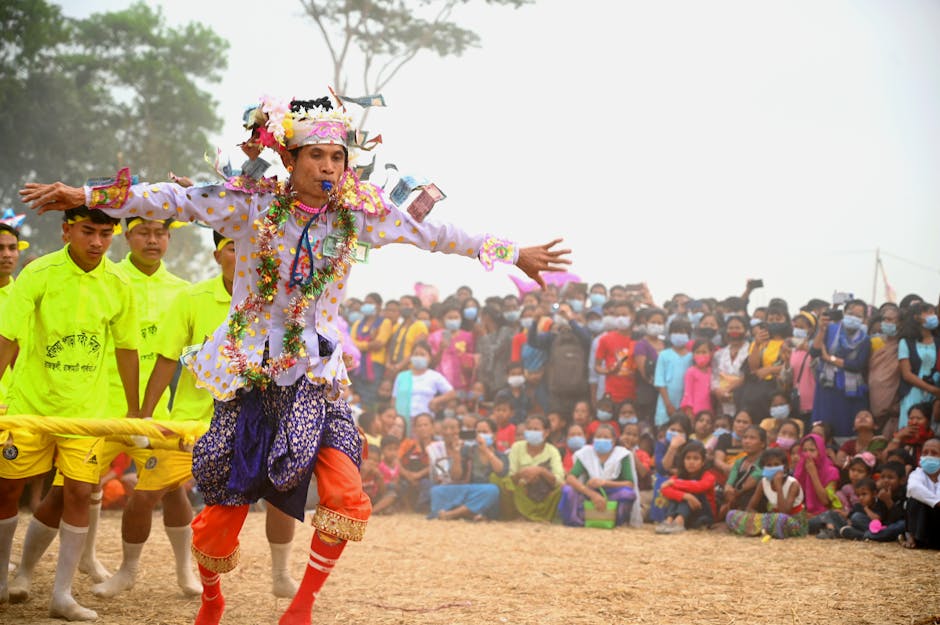Sonic booms, vibrant colours, and throngs of enthusiastic music lovers these are the hallmarks of a thriving music festival. Beyond the fleeting moments of exhilaration, however, these events cast a long shadow on the communities that host them. From economic benefits and cultural enrichment to infrastructure challenges and environmental concerns, music festivals profoundly shape the lives of local residents. This article delves into the multifaceted relationship between these events and the communities they touch.
A Rhythmic Infusion of Revenue: Economic Considerations
Music festivals, often more than mere entertainment, function as powerful engines of economic growth for local economies. Increased tourism, fuelled by the festival’s allure, translates into a surge in spending on accommodation, food, transportation, and souvenirs. This influx of cash directly benefits local businesses, restaurants, hotels, and service providers. Consider, for instance, the rise in demand for parking, taxi services, and even local artisan crafts during a festival. Small businesses, a cornerstone of many communities, see a boost in revenue, potentially securing their future and contributing to a healthier local economy. A carefully planned event, one strategically promoted to attract out-of-town visitors, can significantly elevate local coffers and create a multiplier effect throughout the area.
Beyond the immediate economic benefits, festival organizers often contribute to local infrastructure development. Investments in roads, sanitation systems, and public spaces are sometimes motivated by the need to accommodate the increased foot traffic and logistical demands of the event. This can lead to long-term improvements that better serve the community even after the festival concludes, creating lasting tangible assets.
Cultural Crossroads: Fostering Community Identity
Music festivals are frequently more than just concerts; they are vibrant cultural crossroads. They provide a platform for showcasing local talent and traditions, both performers and craftspeople. This exposure can lead to increased recognition of community artisans and performers, ultimately promoting a sense of pride and unity amongst residents. The festival atmosphere often creates a sense of shared experience, uniting individuals from diverse backgrounds and fostering a strong sense of belonging.
However, the celebration of local culture can sometimes clash with the presence of visiting performers and fans. Managing the integration of these diverse cultural elements is critical for a positive outcome. Effective festivals carefully balance the needs of the visitor and the needs of the local population, allowing all parties to benefit from the exchange of cultures.
A Symphony of Challenges: Examining the Darker Side
While festivals create considerable positive economic benefits, they also present challenges for local communities. Increased traffic, sanitation issues, and the strain on public resources like water and electricity can place significant burdens on infrastructure. Overcrowding and noise pollution can affect local residents’ quality of life, creating a sense of disruption during the event. Moreover, issues of public safety, including security, crowd control, and potential incidents, demand careful attention and efficient management. Festival organizers must anticipate these issues and collaborate with local authorities to mitigate them proactively.
The ecological impact is another significant concern. Waste management, energy consumption, and the transport of attendees contribute to environmental pressures. Organizers should strive to implement environmentally responsible practices to minimize their negative footprint. Sustainable solutions, such as reducing waste through recycling programs and utilizing renewable energy sources, are crucial components of responsible festival planning.
Preserving the Balance: Navigating the Complexities
Successful music festivals are not merely about generating revenue or showcasing talent; they are about striking a balance between the desires of the visitors and the needs of the local community. Effective communication is key. Establishing clear channels for feedback and suggestions from residents before, during, and after the event will assist in identifying potential problems and formulating solutions in a proactive manner.
Organizers should prioritize community engagement. Engaging with local businesses and residents through consultations, providing opportunities for local artists, and working with local authorities to create integrated solutions can help minimize negative impacts and maximize the positive contribution of the festival.
In conclusion, music festivals present a unique and multifaceted relationship with the communities that host them. From boosting local economies and fostering cultural exchange to posing environmental and logistical challenges, these events demand meticulous planning and ongoing evaluation. Understanding this complex interplay, focusing on positive impact, and implementing responsible practices can enable these celebrations to enrich both the communities and the global music scene. A careful balance between the economic benefits, cultural enrichment, and potential challenges ensures that the echoes of the stage reverberate positively for years to come.
